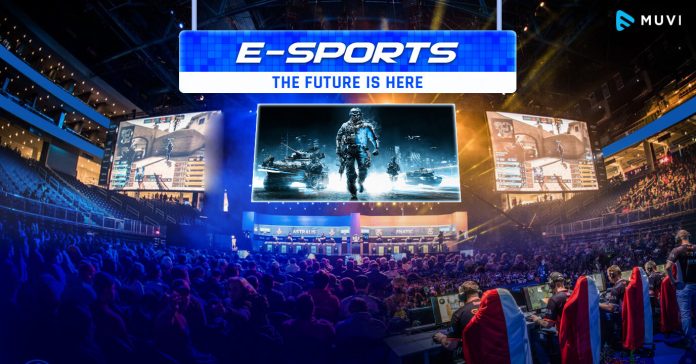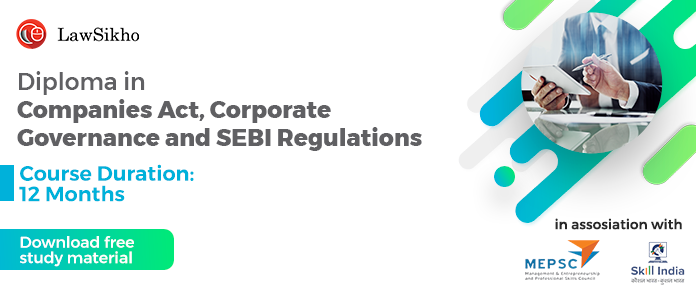This article was authored by Syeda Salma Fathima pursuing Diploma in Technology Law, Fintech Regulations and Technology Contracts and edited by Koushik Chittella.
This article has been published by Sneha Mahawar.
Table of Contents
Introduction
Esports is a billion-dollar and emerging field that has become a global phenomenon in recent times. Although online gaming is very popular among younger generations, it is still evolving in different parts of the world. It is not yet familiar to the general public. It is very different from the conventional type of gaming system, where a large number of players with their skills compete against each other on an online platform.
What is eSport
An esport, or electronic sport, is an organised individual or multiplayer online video game competition where professional players or teams compete against each other for prizes and recognition. It is a professional competition using online video games. Here, no physical effort is required, as esports, being a digital game, provides a virtual environment with technical support. These games require skill, strategy, and teamwork, making them highly competitive and engaging for both players and spectators. It is a virtual game where a player can play from any corner of the world. Some examples of esports are Fortnite, League of Legends, Call of Duty, FIFA, etc.
What games are considered esports
The majority of eSports genres are fighting games, real-time strategy, first-person shooters (FPS), or multi-player arena-based games. A game turns into an esport through a combination of various factors. These factors include:
- Competitive
- Must have a large player base
- Must be well funded
History of eSports in India
The concept of organised competitive gaming, i.e., “esports,” gained popularity in the late 1990s and early 2000s. In the 1990s, with the rise of personal computers and the internet, multiplayer gaming became more accessible. The establishment of major tournaments and the rise of professional teams and players led to significant growth in esports during the 2000s. Then, during the 2019 lockdown period, online games boosted revenue for gaming companies, and they noticed increased recognition and support from mainstream media, sponsors, and investors. Boosting its popularity and commercial viability, major sports organisations and celebrities have entered the esports scene.
The world of competitive gaming is experiencing tremendous popularity, with millions of fans and lucrative prize pools. However, with rapid growth in this industry, questions about its legality also emerged.
The legal status of eSports
The legal status of esports varies from country to country; in some nations, esports is recognised as a legitimate sport, while in other countries it is still in the grey area. As esports is the fastest-growing market in the world, it is generating a great impact on the Indian economy too. India officially recognised eSports as a multi-sport event on December 27, 2022. This has led to a change in the Government of India (Allocation of Business) Rules 1961, where the Ministry of Youth Affairs and Sports included esports in the category of “multisports events” by integrating esports with traditional sports disciplines. PUBG, BGMI, Call of Duty, DOTA 2, Tekken 7, and FIFA are among the most popular esports in India. Thus, esports in India fall under the ambit of the Ministry of Sports and Youth Affairs. Esports will now be given the same importance as traditional games like cricket, hockey, football, etc.
E-Gaming Policy to Safeguard the interest of Players
By including esports in multisport events, a new egaming policy is introduced to safeguard the interests of the esports player, the same as in traditional games. Earlier, esports players were mostly covered under contract law, in the form of employment contracts with teams or organisations, similar to traditional sports. These contracts outlined the terms of engagement, including salary, sponsorship, and tournament participation. But there was no specific legislation or regulatory framework dedicated solely to this sector to govern the legal issues that may arise if there are any disputes over the contract terms, player transfers, or breaches of agreements.
Present e-gaming legislation in India
In India, certain laws and regulations already exist on esports and competitive gaming, like the Public Gambling Act, 1867 (Gambling Act), the Prize Competition Act, 1955, and the Information Technology Act, 2000, which governs online gaming activities in India. Gambling and betting are mentioned in the state list of the Indian Constitution under Article 246 of the Seventh Schedule. As per Section 12 of the Gambling Act, its provisions apply to all games of chance. But esports requires a certain set of skills that do not fall within its ambit. This distinction is crucial in determining the legal status and regulation of esports in India; skill-based competitions are generally considered legal, while gambling activities are heavily regulated in India.
As sports are part of the State List of the Indian Constitution, the Central Government does not have the power to regulate betting and gambling. Such power rests with state governments; every state in India has its own legal regulation affecting online gaming, such as the Sikkim Online Gaming (Regulation) Act, 2008; the Nagaland Prohibition of Gambling and Promotion and Regulation of Online Games of Skill Act, 2015; and the Tamil Nadu Prohibition of Online Gambling and Regulation of Online Games Act, 2022, that imposes a ban on online gaming activities. Karnataka’s Government has also amended the provisions thereby restricting gambling, betting wagering, etc.
Minister of State for Electronic and Information Technology (MeitY) Rajeev Chandrashekhar said esports is a very important piece of the startup ecosystem and part of the goal of a 1 trillion dollar economy, and the government will work hard to ensure all opportunities for Indian startups.
Recent amendments made to regulate eSports in India
The Amendment Rules, 2023, of the IT (Intermediary Guidelines and Digital Media Ethics Code) Rules, 2021, mark an important step towards safeguarding the rights of the online gaming industry, the players, and their funds against online scams and frauds, protecting young and vulnerable users against online abuse and indecency. This will lead to an increase in investor interest in the Indian online gaming sector. The rules are as follows:
- There shall be a self-regulatory body that will approve whether the games are legally permissible in India or not.
- Permissible online games include all online games that are permissible in India, both real-money games and non-real-money games.
- Online games will have to register with a self-regulatory body. The games approved by the body will be allowed to legally operate in India. This is done to regulate online gaming platforms as intermediaries and place due diligence requirements on them.
- The self-regulatory body shall ensure that the registered games will not harm the sovereignty and integrity of India.
- Online gaming companies will not be allowed to engage in betting on the outcome of games.
- By amending Information Technology (Intermediary Guidelines and Digital Media Ethics Code) Rules, 2021, wagering on the outcome of games will not be allowed. It aims to safeguard users against potential harm from skill-based games. Esports shall have friendly relations with foreign states or public order to prevent user harm.
- And shall provide any required information to law enforcement authorities (about investigations, prosecutions, or cybersecurity incidents) within a prescribed period.
- Like an intermediary, the online gaming firms shall undertake additional due diligence, such as KYC of users, transparent withdrawal and refund of money, and fair distribution of winnings.
- The real-money online gaming intermediaries shall have a physical contact address in India (the details of which are required to be published on their platform) to receive any communication.
- The identification and verification of a customer in line shall follow the procedure required by the entity regulated by the Reserve Bank of India (RBI) before accepting any deposit in cash or kind from any user for a permissible online real money game.
- The Intermediaries shall inform its users of any change in privacy policy, user agreement, or rules and regulations within twenty-four (24) hours of such change. users of such changes periodically (at least once every year).
- The Amendment Rules specifically prohibit real-money intermediaries from financing or allowing any third party to finance any user for playing permissible online real money games.
- Online gaming intermediaries are subject to GST when they facilitate games of chance, such as gambling. The GST rate for such games is 28%. For games of skill, the rate applicable is 18%.
Growth of Online gaming sector in India
Unprecedented growth is seen in online gaming in India. Here are some statistics about the growth of online gaming in India:
- The Indian online gaming industry grew at a Compounded Annual Growth Rate (CAGR) of 38 percent between 2017-2020, compared to 8 percent in China and 10 percent in the US
- It is expected to grow at a Compounded Annual Growth Rate (CAGR) of 15 percent to reach 153 billion in revenue by 2024, as per the report of VC firm Sequoia and management consulting company BCG.
- The revenue of the Indian mobile gaming industry is expected to reach 5 billion dollars in 2025.
Conclusion
Esports, with its tremendous growth and unwavering popularity, has changed the scenario of competitive gaming. With the advancement of technology, the competitive online gaming system has become a legitimate form of entertainment. With the further penetration of the global system of mobile communication, eSports needs urgent laws to protect the intellectual property rights, copyrights, and trademark rights of the players; otherwise, infringements of such rights can take place, which may lead to huge losses for game developers, players, and the gaming industry.
References
- https://thewire.in/sport/legal-and-technical-issues-galore-as-esports-continue-to-grow-rapidly-in-india
- https://www.sportstiger.com/news/government-of-india-announces-e-gaming-policy-for-safeguarding-interests-of-players
- https://blog.ipleaders.in/laws-on-online-gaming-in-india/#:
- https://www.sportstiger.com/news/government-of-india-
- https://www.cnbctv18.com/technology/indias-online-gaming-market-dream11-my11circle-rummycircle-games-24-7-ipl-mpl-16062901.htm
- https://mib.gov.in/sites/default/files/IT%28Intermediary%20Guidelines%20and%20Digital%20Media%20Ethics%20Code%29%20Rules%2C%202021%20English.pdf
- https://www.mea.gov.in/Images/pdf1/S7.pdf
- https://prsindia.org/billtrack/amendments-to-it-rules-2021
- https://www.scconline.com/blog/post/2022/08/17/regulation-of-esports-in-india/
- https://cabsec.gov.in/writereaddata/allocationbusinessrule/completeaobrules/english/1_Upload_1187.pdf
- legalupanishad.com/laws-regulating-esports-in-india/
- https://www.india-briefing.com/news/everything-you-need-to-know-about-draft-rules-for-online-gaming-in-india-26830.html/
Students of Lawsikho courses regularly produce writing assignments and work on practical exercises as a part of their coursework and develop themselves in real-life practical skills.
LawSikho has created a telegram group for exchanging legal knowledge, referrals, and various opportunities. You can click on this link and join:
Follow us on Instagram and subscribe to our YouTube channel for more amazing legal content.
 Serato DJ Crack 2025Serato DJ PRO Crack
Serato DJ Crack 2025Serato DJ PRO Crack











 Allow notifications
Allow notifications


